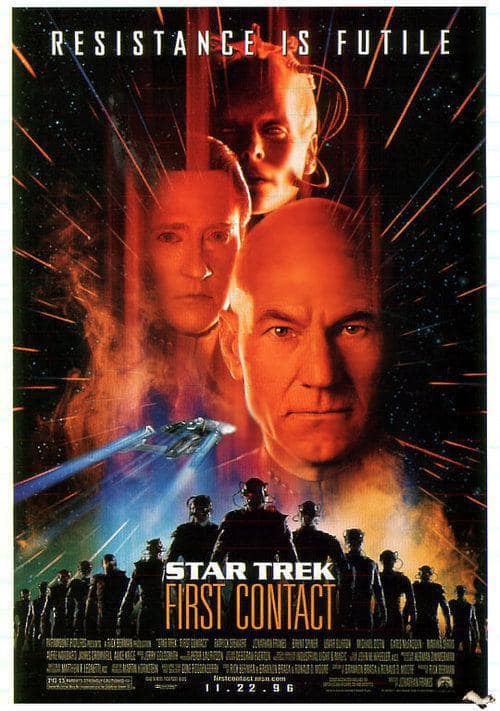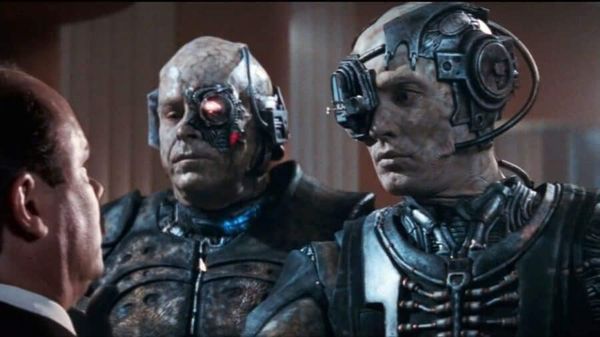Star Trek: First Contact (1996)

Star Trek: First Contact is the eighth film in the Star Trek franchise and the second featuring the cast of Star Trek: The Next Generation. Directed by Jonathan Frakes, the film combines action, science fiction, and a thoughtful exploration of humanity’s potential.
Plot Overview
The film follows Captain Jean-Luc Picard (Patrick Stewart) and the crew of the USS Enterprise as they face one of their most dangerous enemies: the Borg, a cybernetic species that seeks to assimilate all life forms into their collective. The Borg travel back in time to the 21st century to prevent humanity’s first contact with an alien species—an event that leads to the formation of the peaceful, exploratory United Federation of Planets.
To stop the Borg’s plan, the Enterprise crew must ensure that Zefram Cochrane (James Cromwell), a brilliant but reluctant scientist, successfully completes humanity’s first warp flight. This event, known as “First Contact,” draws the attention of the Vulcans, setting the foundation for Earth’s future in space exploration.

At its core, Star Trek: First Contact is a film about hope, resilience, and the importance of unity. It explores humanity’s potential for greatness and the critical moment when humankind transitions from isolationism to a broader cosmic community.
- Overcoming Fear and Trauma: One of the central themes of the movie is Picard’s personal struggle with his past experiences with the Borg, which almost led to his assimilation. His journey throughout the film mirrors humanity’s struggle to overcome fear and trauma to embrace a hopeful future.
- Progress and Innovation: The film celebrates technological advancements and innovation, represented by Zefram Cochrane’s warp flight. However, it also highlights the human side of progress—showing Cochrane as a flawed, reluctant hero who embodies both the imperfections and the potential for greatness within humanity.
- Unity and First Contact: The idea of “First Contact” symbolizes the hope that humanity will one day move beyond its differences to join a greater cosmic community. The Vulcans, representing a more advanced species, serve as a reminder of what humanity can achieve if it sets aside fear and embraces cooperation.
- The Borg and Loss of Individuality: The Borg represent the loss of individuality and free will, contrasting sharply with the film’s themes of unity and progress. The battle against the Borg is not just a physical conflict, but a philosophical one, where the preservation of individual thought and freedom is at stake.












